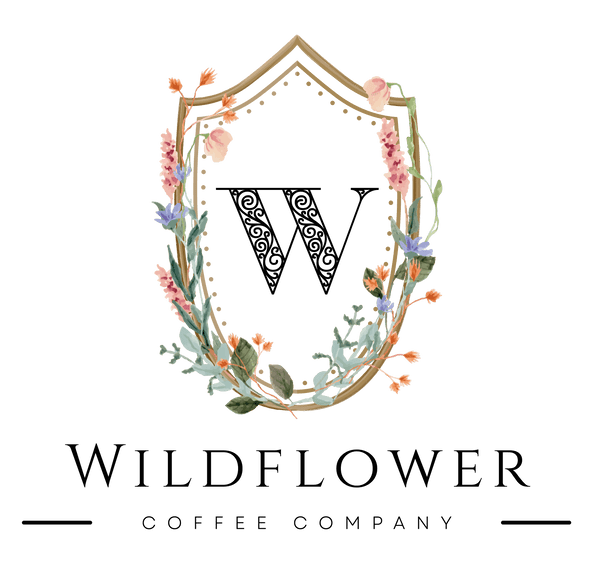
What Makes Organic Coffee Different from Conventional Coffee?
Compartir
Coffee is one of the most consumed beverages in the world, yet the differences between organic and conventional coffee are not always clear to the average drinker. Many assume organic coffee is simply “healthier,” while conventional coffee is just cheaper and more accessible. But the reality is more complex—and far more important.
At Wildflower Coffee Company, we believe understanding these differences helps you make informed choices about what you put into your body every day.
Farming Practices
The first and most obvious distinction lies in how the coffee is grown.
-
Conventional Coffee is cultivated with synthetic pesticides, herbicides, and fertilizers. These chemicals may boost yields but can leave residues in the soil, water, and beans.
-
Organic Coffee is grown without these synthetic substances. Farmers use compost, natural fertilizers, and shade-growing practices that protect ecosystems and biodiversity.
Learn more in our complete guide to organic coffee: Here.
The result: organic farms produce beans in a way that supports long-term environmental health while safeguarding both farmers and consumers.
Health Implications
Conventional coffee can carry trace amounts of chemicals and is often not tested for mold or mycotoxins. While regulations exist, they may not cover every risk.
Organic coffee avoids synthetic chemicals, and when combined with lab testing—as we do at Wildflower Coffee—it provides peace of mind that your morning cup is free from harmful residues. Clean coffee isn’t just about taste; it’s about supporting overall wellness.
Taste and Freshness
Flavor is another key differentiator.
-
Conventional Coffee is often grown on large industrial farms with less attention to quality. Beans may sit in storage or on grocery shelves for months.
-
Organic Coffee, particularly when specialty-grade, offers brighter acidity, richer body, and more complex tasting notes. Free from chemical interference, the beans develop naturally, allowing terroir to shine.
When coffee is also roasted to order—as ours is—the difference in freshness and flavor is unmistakable.
Environmental Impact
Organic farms preserve soil health, protect waterways from chemical runoff, and often use shade-grown techniques that create habitats for birds and pollinators. Conventional coffee farming, in contrast, can lead to deforestation, soil depletion, and ecosystem disruption.
Choosing organic isn’t just good for your cup—it’s good for the planet.
The Wildflower Coffee Difference
Many brands stop at “organic.” We go further:
-
🌿 USDA Certified Organic beans
-
🔍 Third-party lab testing for mold, mycotoxins, and heavy metals
-
🔥 Roasted fresh to order for peak flavor
-
🤝 Direct relationships with small farms
This means you’re not just drinking organic coffee—you’re drinking organic coffee without compromise.
Conclusion
The difference between organic and conventional coffee comes down to health, taste, sustainability, and ethics. Conventional coffee may be cheap and accessible, but it often carries hidden costs to your well-being and the environment. Organic coffee offers a cleaner, more flavorful, and more responsible choice.
By choosing Wildflower Coffee, you’re choosing coffee that reflects care from farm to cup.
👉 Explore our collection today at wildflowercoffeecompany.com.
👉 Or read more on organic coffee here.
